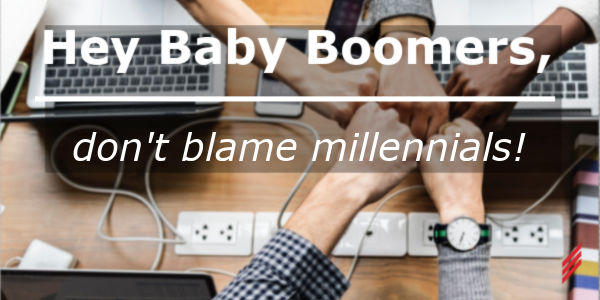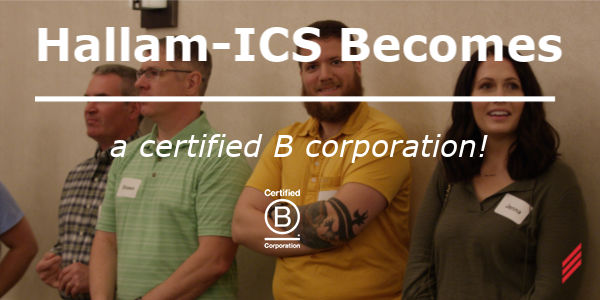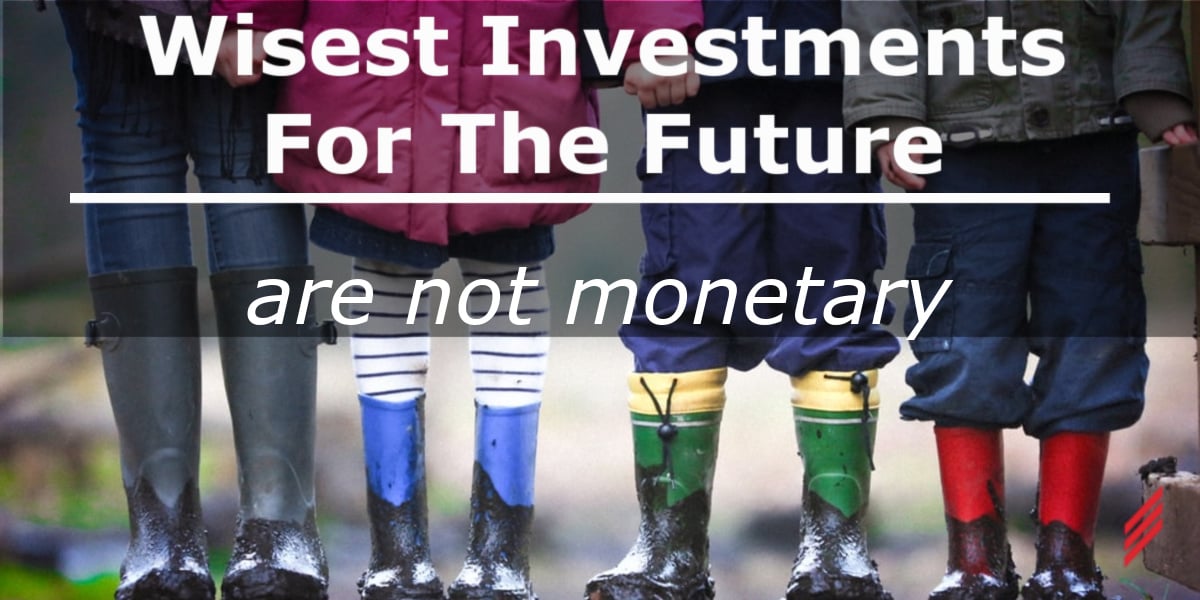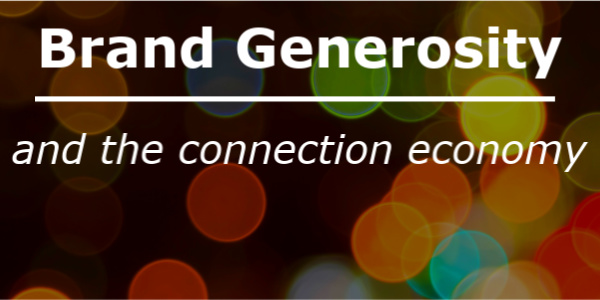Hey Baby Boomers, Don’t Blame Millennials!
by Keith Flaherty on May 4, 2023 10:42:29 AM

“I don’t get it! Since when does a company need to provide more than a steady job with a competitive salary and good benefits? We treat our people well. Why isn’t this enough for Millennials?”The near retirement CEO I was speaking with was expressing his frustration. He has led a solid company for many years; they’ve grown steadily and profitably, are recognized in their industry for the quality of their work and have a reputation as a good employer in their communities. “Isn’t that enough?” has asks me again, “what do you folks do to deal with this generation?” I found it odd that he was singling out Millennials and their desire to work for a company that exists for more than making a profit; my experience is that people from all generations want to work for companies that want to do good.
This CEO is not alone in his feelings and stereotypes of Millennials. You’ve probably heard or read in the media that they are “lazy,’” “distracted,” “coddled,” and “self-absorbed.” Maybe you saw Simon Sinek’s interview that went viral, where he described much of what was “wrong” with Millennials, with “entitled being the big one.” Perhaps you’ve heard colleagues, friends or families share their perceptions.
This is nothing new; every generation has been labelled in the workforce by the generations before them. As a member of Generation X, I remember when we (the MTV Generation) were often described as impatient, unwilling to “put in our time”, and disrespectful of authority. There’s a whole industry dedicated to understanding generations and what makes groups of people “tick.” In her paper, Generational diversity: Implications for consultation and teamwork, psychologist Constance Patterson, PhD provided the following table detailing different working traits of generations:
DEFINING WORK CHARACTERISTICS

- 84% said making a positive difference in the world was more important than professional recognition (Study by Bentley University).
- 81% of millennials expect companies to make a public commitment to good corporate citizenship (Horizon Media’s Finger on the Pulse).
- 76% consider a company’s social & environmental commitments when deciding where to work vs 58% US average (Cone Communications).
The interesting thing about this research is that other generations, particularly Generation X, share similar views. The utopian beliefs that Sinek derisively attributes to Millennials, “they want to make an impact…whatever that means,” are becoming much more mainstream. Fortune Magazine now devotes an entire issue each year to their Change the World list. In the introduction to this year’s issue, Fortune states:
As the bar for social impact and business value gets raised, we believe that each iteration of the Change the World list get stronger with well-established and new companies alike proving that purpose and profit can go hand in hand. And we think that is a good sign because, despite today’s breathless headlines, businesses are making real change in the world: reducing greenhouse gases, increasing economic opportunity, and promoting better health. Plenty of companies still operate without regard to their social impact, often causing considerable harm, but those on the list, and those who aspire to be on it in the coming years, are the future of business – and the hope for our world.
As a business leader, generalizing an entire generation is risky and will likely lead to misperceptions and missed opportunities. Data from the Pew Research Center indicates that Millennials represented the largest generation in the American workforce in 2016, at nearly 35% and are projected to be 50% of the American workforce by 2020.
I am part of a group that was recently challenged to envision our industry (automation and engineering) ten years in the future. For some, the focus was on anticipating the changes in technology that would drive our business. For me, there are two areas that will impact our future; we’ll be competing for clients and we’ll be competing for employees. As a service industry, our success is and will be dependent upon our people. Those companies that can attract and retain talented people will most likely find success in their business. To find and keep employees (of all generations!), companies must now win their hearts and not just their wallets.
In the Fortune issue mentioned above, Unilever CEO Paul Polman was asked what drives 1.8 million potential employees to apply for a job at Unilever. He responded, “according to the data, 60% more or less – I’m rounding it – says it’s the Unilever Sustainable Living Plan, and the bigger purpose that we have as a business.”
So, when the CEO asked me the question “what do you folks do to deal with Millennials?” he was missing the point. It’s not just Millennials. And today, providing a job and benefits is not enough. People of all ages are interested in having a purpose and meaning to their work. At Hallam-ICS, we say that “our teams love engineering and people.” Our experience is that being Employee-Owned (100% ESOP) and having an active Social Mission are very important to both our current and potential employees. We engage in our communities and share our time, money and resources to support children and families in need. These have been our beliefs since 1981 (before Millennials were born!). We do this because our “work” encompasses so much more than our designs and that belief is what is important to our employees, not just our Millennials.
About the Author
Keith is a graduate of the University of Vermont with a BSEE and an MBA. He has been with Hallam-ICS since 1988 as an electrical engineer, manager of integration services, CFO, and CEO. He focuses the company on understanding and meeting the needs of each individual client while at the same time delivering the highest possible level of technical expertise.
Read My Hallam Story
About Hallam-ICS
Hallam-ICS is an engineering and automation company that designs MEP systems for facilities and plants, engineers control and automation solutions, and ensures safety and regulatory compliance through arc flash studies, commissioning, and validation. Our offices are located in Massachusetts, Connecticut, New York, Vermont, North Carolina, Texas and Florida and our projects take us world-wide.
You May Also Like
These Related Stories

Hallam-ICS Becomes a Certified B-Corporation!

Wisest Investments for the Future are Not Monetary



No Comments Yet
Let us know what you think